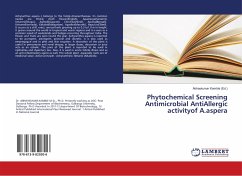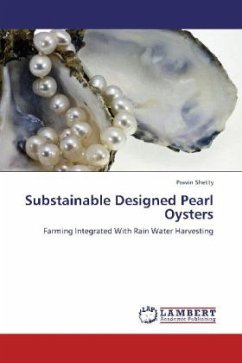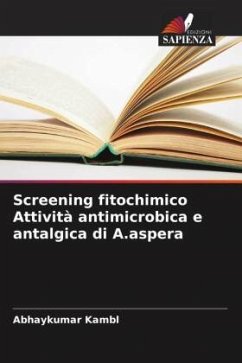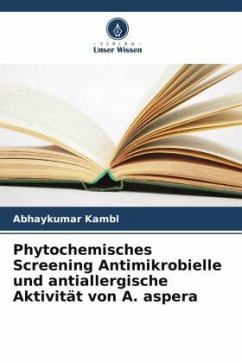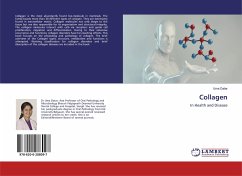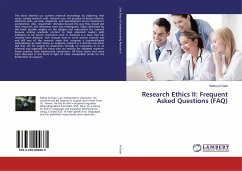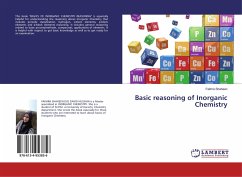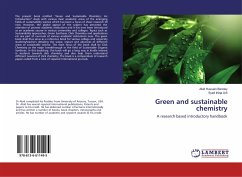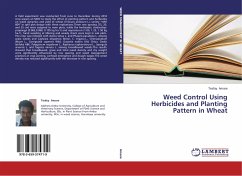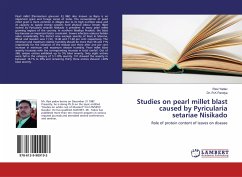
Studies on pearl millet blast caused by Pyricularia setariae Nisikado
Role of protein content of leaves on disease
Versandkostenfrei!
Versandfertig in 6-10 Tagen
27,99 €
inkl. MwSt.

PAYBACK Punkte
14 °P sammeln!
Pearl millet [Pennisetum glaucum (L) RBr] also known as Bajra is an important grain and forage cereal of India. The consumption of pearl millet grain is more common in villages due to its high nutritive value and its capacity to supply energy sustains hard physical labour longer. Blast incited by Pyricularia setariae Nisikado is prevalent in many pearl millet growing regions of the country. In northern Madhya Pradesh, the blast has became an important biotic constraint. Severe infection reduces fodder value considerably. The district wise average severity of blast in Morena, Bhind and Gwalior ...
Pearl millet [Pennisetum glaucum (L) RBr] also known as Bajra is an important grain and forage cereal of India. The consumption of pearl millet grain is more common in villages due to its high nutritive value and its capacity to supply energy sustains hard physical labour longer. Blast incited by Pyricularia setariae Nisikado is prevalent in many pearl millet growing regions of the country. In northern Madhya Pradesh, the blast has became an important biotic constraint. Severe infection reduces fodder value considerably. The district wise average severity of blast in Morena, Bhind and Gwalior was 11.53, 13.40 and 11.28 per cent respectively. The minimum and maximum relative humidity should be more than 56 and 71% respectively for the initiation of the disease and there after one per cent increase in minimum and maximum relative humidity. Pearl millet blast severity increases with the corresponding increase in total rainfall. Out of 248, sixteen entries exhibited up to 5% blast severity. Sixty eight entries were fall in the category of 5.1-10% severity, 131 showed the severity in between 10.1% to 20% and remaining thirty three entries showed 20% blast severity.



